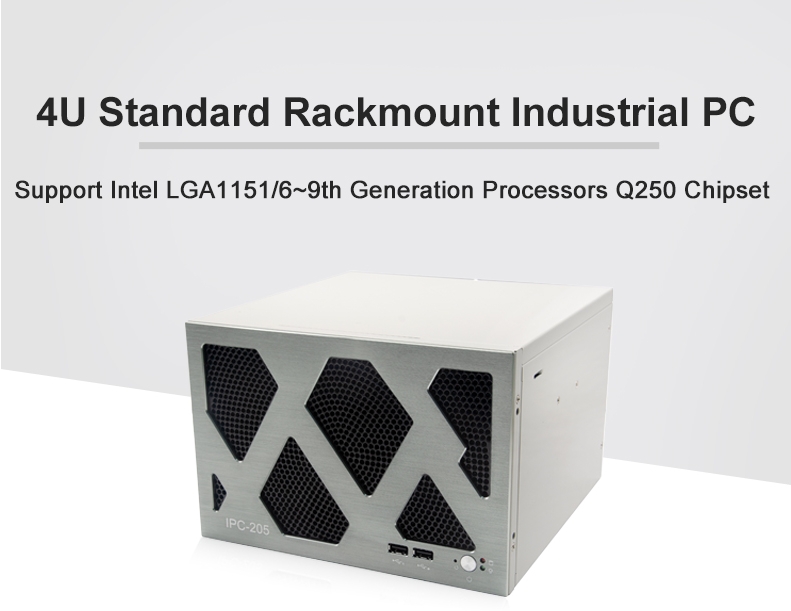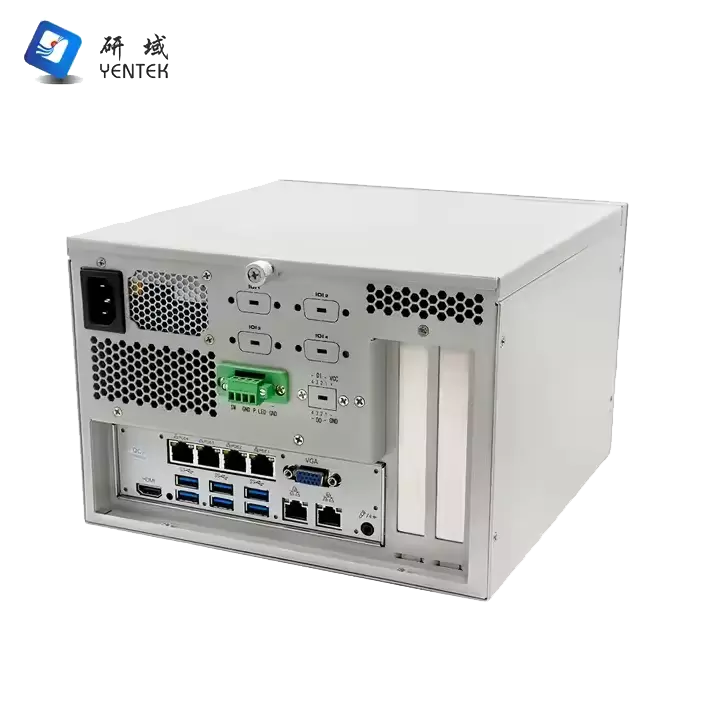Optimizing Industrial Workflows: The Benefits of 4U Industrial PC Solutions
In industrial environment, the demand for efficient and reliable computing solutions is more critical than ever. YENTEK®, a high-tech enterprise specializing in the research, development, production, sales, and service of industrial computing products, offers innovative solutions to meet these demands. Among these solutions are 4U industrial PCs, which play a pivotal role in optimizing workflows across various sectors. This blog will explore the advantages of 4U industrial PC solutions, their applications, and how they can enhance operational efficiency in industrial settings.
Understanding 4U Industrial PCs
What Are 4U Industrial PCs?
4U industrial PCs are rack-mounted computing systems designed to operate in demanding environments. The "4U" designation refers to the height of the unit, which is four rack units (7 inches or 17.78 cm). These systems are built to withstand harsh conditions such as extreme temperatures, dust, and vibrations while providing robust processing power and connectivity options.
Key Features of 4U Industrial PCs
Durability: Constructed with industrial-grade components, 4U PCs are designed for continuous operation in challenging environments.
Scalability: These systems typically offer multiple expansion slots (PCIe and PCI) for adding additional hardware as needed.
Versatile I/O Options: 4U industrial PCs come equipped with various input/output ports, including USB, serial ports, and Ethernet connections, facilitating seamless integration into existing systems.
Support for Multiple Operating Systems: They can run various operating systems, including Windows and Linux, making them adaptable for different applications.

Benefits of 4U Industrial PC Solutions
1. Enhanced Performance
One of the primary advantages of 4U industrial PCs is their ability to deliver high performance under demanding workloads. Equipped with powerful processors—such as Intel® Core™ or Xeon® CPUs—these systems can handle complex computations and multitasking efficiently. This capability is essential for industries that rely on data-intensive applications such as manufacturing automation, real-time monitoring, and control systems.
2. Improved Reliability
Reliability is crucial in industrial settings where downtime can lead to significant losses. 4U industrial PCs are designed with redundancy features such as dual power supplies and RAID configurations for data protection. Their robust construction minimizes the risk of hardware failures due to environmental stressors, ensuring continuous operation.
3. Space Optimization
In many industrial environments, space is at a premium. The rack-mounted design of 4U PCs allows for efficient use of vertical space in server rooms or control cabinets. By consolidating computing resources into a compact unit, businesses can maximize their available space while maintaining organized operations.
4. Streamlined Maintenance
Maintenance is vital for keeping industrial operations running smoothly. Many 4U industrial PCs feature modular designs that simplify upgrades and repairs. With easily accessible components, technicians can quickly replace or upgrade parts without extensive downtime.
5. Scalability for Future Growth
As industries evolve and technology advances, businesses must adapt to new challenges and opportunities. The scalability of 4U industrial PCs allows companies to expand their computing capabilities as needed. With multiple expansion slots available, organizations can add new hardware components—such as additional storage or advanced graphics cards—without replacing the entire system.

Applications of 4U Industrial PCs
In Manufacturing Automation
Manufacturing environments often require real-time data processing and control over machinery and equipment. 4U industrial PCs serve as central processing units (CPUs) in automation systems, managing everything from robotic arms to conveyor belts. Their ability to process large volumes of data quickly ensures that production lines operate efficiently.
In Process Control Systems
In industries such as oil and gas, pharmaceuticals, and chemicals, process control systems rely on accurate data collection and analysis to maintain safety and efficiency standards. 4U industrial PCs can interface with various sensors and devices to monitor conditions in real time, enabling operators to make informed decisions based on up-to-date information.
In Transportation Management
The transportation sector benefits from the robust capabilities of 4U industrial PCs for managing logistics and fleet operations. These systems can track vehicle locations, monitor fuel consumption, and analyze traffic patterns—all critical factors for optimizing transportation workflows.
In Environmental Monitoring
Environmental monitoring requires reliable data collection from remote locations. 4U industrial PCs can be deployed in harsh outdoor environments to gather data from sensors measuring air quality, water quality, or weather conditions. Their durability ensures they continue functioning effectively despite challenging conditions.

Conclusion
Optimizing workflows in competitive industrial landscape requires reliable and efficient computing solutions. YENTEK®'s 4U industrial PC solutions offer numerous benefits that enhance performance, reliability, scalability, and maintenance ease across various sectors—from manufacturing automation to environmental monitoring.
By integrating these powerful computing systems into their operations, businesses can streamline processes while positioning themselves for future growth in an increasingly digital world. As technology continues to evolve, embracing innovative solutions like 4U industrial PCs will be essential for companies aiming to stay ahead in their industries while maximizing productivity and efficiency.
Securing Critical Data: The Role of Rackmount IPCs in Cybersecurity
